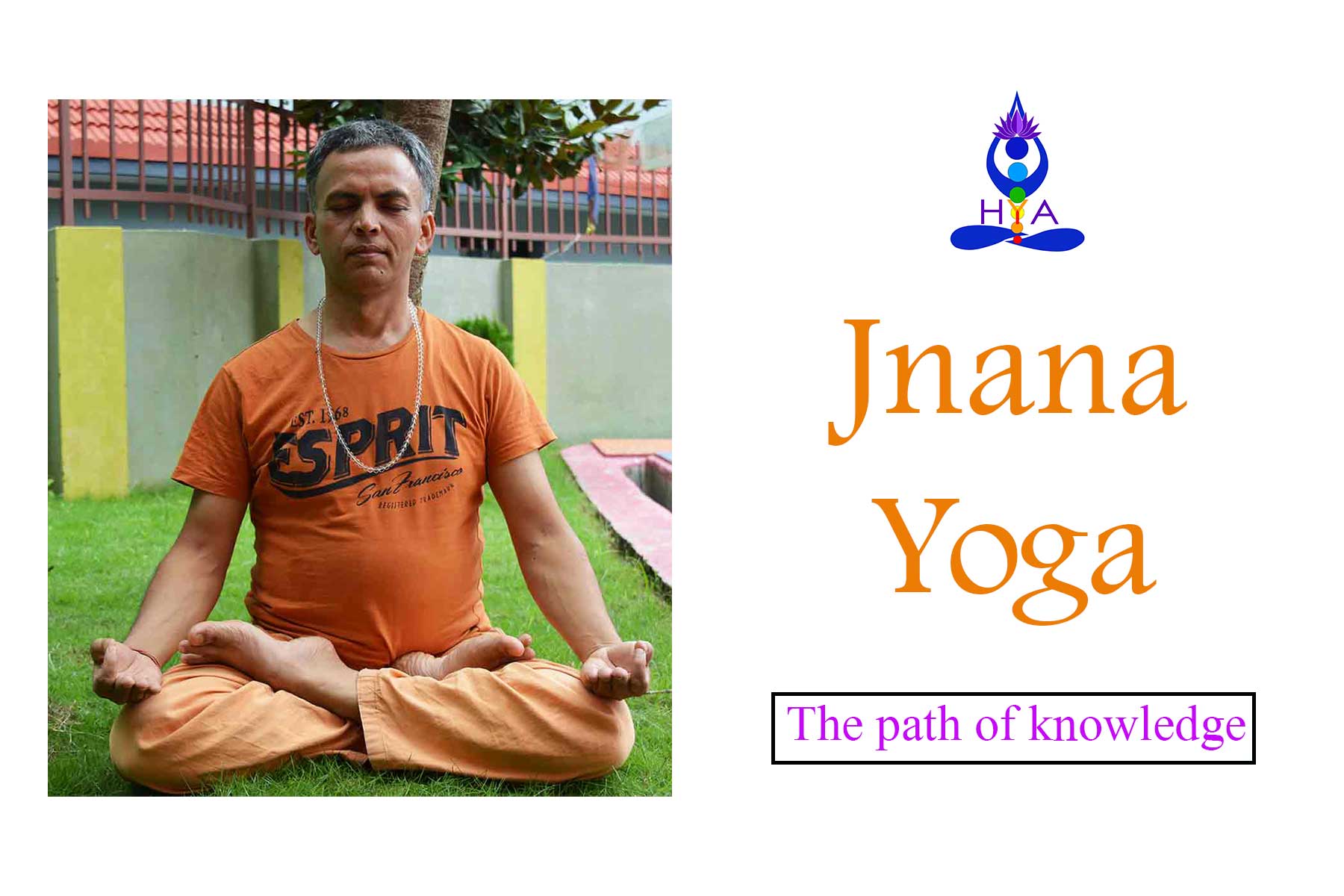
7 Apr 2021 HYN Himalayan Yoga Academy
Jnana Yoga, The Path of Knowledge
Introduction of Jnana Yoga
Jnana Yoga is one of the three classical types of Yoga and is termed the “Yoga Of Meditation”. As per Advaita Vedanta, Jnana Yoga is defined as the “absolute consciousness awareness” that can be achieved through study and meditation. The key to jnana Yoga is Intellect.
Jnana yoga is the yoga of knowledge, not knowledge in the intellectual sense but the knowledge of Brahman and Atman and the realization of their unity. Where the devotee of God follows the promptings of the heart, the jnani uses the powers of the mind to discriminate between the real and the unreal, the permanent and the transitory, good and bad, and right and wrong.
The path of knowledge, or Jnana Yoga, is the experiential knowledge of the Self. The literal translation of Jnana or Gyana is “knowledge.” This path emphasizes a process of gaining wisdom through a cognitive engagement with the divine. Though one begins on this path by reading scriptures and listening to talks by spiritual masters, knowledge ultimately becomes experiential and becomes ingrained in the seeker through divine grace.
Two ways of Jnana Yoga Practice
Bahiranga Saadhanaa (External Practice):
Viveka (Discrimination)
When you observe that change happens constantly, and at the same time recognize the unchanging nature of the divine being within you, then you experience discrimination. Even though our bodies, thoughts, and emotions renew and fluctuate, the part of you that witnesses this process doesn’t change. Identifying your own ability to witness is a purpose of Jnana Yoga.
Vairagya (Renunciation)
Also translated as dispassion, vairagya involves an attitude of acceptance and a lack of feverishness for anything. By becoming less attached to the pleasures and pains of the world, and by remaining active and enthusiastic regardless of the fulfillment of desires, you can experience the second pillar of knowledge and be free of unsatisfied cravings and aversions.
Shatsampatti (Six signs of Wealth)
Shama, the first wealth, is the tranquility of the mind.
Dama, the second wealth, is control over one’s own senses.
Titiksha, the third wealth, is endurance or forbearance, or not getting shaken by what happens.
Uparati, the fourth wealth, is rejoicing in or being with your own nature.
Shraddha, the fifth wealth, is faith, or recognition of the unknown.
Samadhana, the sixth wealth, is contentment or being at ease, calm and serene.
Mumukshatva (Constant Striving for Freedom)
From within, you desire the best. Total freedom, enlightenment, and the highest longing should be the goal of the yogi. All of these pillars and wealth already reside within you, although you don’t know they do. Still, you have the ability to conceive of the possibility of attaining them. This deep longing for the ultimate experience of bliss is the fourth pillar of knowledge.
Antaranga Saadhanaa (Internal Practice)
The first stage is called Sravanam, which literally means listening.
The second stage is called Manana, which literally means contemplating or remunerating facts in your head.
Nididhyasana is the third stage which literally means meditating. At this stage, the student meditates and this leads to expansion into the Truth.
Knowledge and spiritual evolution
Gaining knowledge solely through reading or hearing can lead to an attitude of “I already know it all,” which feeds the ego and becomes an obstacle to spiritual growth. No amount of reading or gathering information can replace the direct experience of the Self. Therefore, it is essential to recognize the difference between Jnana wisdom, which is connected to grace, and mere factual information.
Wisdom, or experiential knowledge of the Self, fosters surrender and devotion in one’s life. Jnana represents the highest form of knowledge, one that discriminates between what is transient and what is eternal, between what is unreal and what is real.
